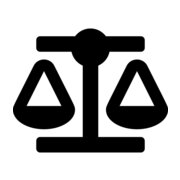Best Same Sex & LGBT Lawyers in Fribourg
Share your needs with us, get contacted by law firms.
Free. Takes 2 min.
Free Guide to Hiring a Family Lawyer
List of the best lawyers in Fribourg, Switzerland
About Same Sex & LGBT Law in Fribourg, Switzerland
Switzerland has made significant progress in safeguarding the rights of lesbian, gay, bisexual, and transgender (LGBT) people in recent years. Fribourg, as a canton in Switzerland, follows the federal legal framework concerning same sex and LGBT matters, while also implementing cantonal measures on equality and anti-discrimination. Same sex marriage has been legal in Switzerland since July 1, 2022, granting same sex couples the same legal status as opposite sex couples. In addition to marriage, LGBT individuals and couples have access to protections against discrimination and hate crimes, and transgender individuals have rights regarding gender marker changes.
Why You May Need a Lawyer
Navigating the legal system can be challenging, especially when it comes to matters related to sexual orientation and gender identity. You may need legal assistance in various scenarios. Common reasons include facing discrimination at work or in public services, issues related to same sex marriage or registered partnerships, adoption and parenting rights, seeking asylum based on sexual orientation or gender identity, and addressing hate speech or hate crimes. A lawyer who understands LGBT law in Fribourg can help protect your rights, represent you in disputes with employers, landlords, or government agencies, and guide you through legal processes such as marriage, adoption, or gender marker changes.
Local Laws Overview
Switzerland’s legal framework for LGBT rights applies in Fribourg, with some local nuances:
- Same sex marriage is fully legalized, allowing access to joint adoption and fertility treatments under certain conditions.
- LGBT individuals are protected under anti-discrimination laws, with criminal penalties for acts of hate or incitement against sexual orientation.
- Transgender people can change their legal gender through a simplified administrative process, without the requirement for surgery or court approval.
- Adoption is permitted for married same sex couples, as well as joint adoption and stepchild adoption.
- Local education and public services are committed to promoting diversity and preventing discrimination, but practical experiences can vary.
- Fribourg canton has equality support structures and ombuds services for discrimination cases.
- There are ongoing efforts at local and national levels to promote the inclusion and safety of LGBT people, but some legal processes (like international adoptions or surrogacy) remain restricted.
Frequently Asked Questions
Is same sex marriage recognized in Fribourg?
Yes, same sex marriage has been fully legal across Switzerland, including Fribourg, since July 1, 2022. Same sex couples have the same marriage rights as opposite sex couples.
Can same sex couples adopt children?
Yes, married same sex couples can adopt children jointly. Stepchild adoption (adopting the partner’s biological or adopted child) is also permitted.
What protections exist against discrimination based on sexual orientation or gender identity?
Swiss law prohibits discrimination in employment, housing, goods, and services on the grounds of sexual orientation. The criminal code also makes hate speech and hate crimes based on sexual orientation punishable.
How can a transgender person change their legal gender in Fribourg?
Transgender individuals can change the gender marker on their official documents through a straightforward administrative procedure at the civil registrar’s office, with no requirement for medical interventions or court involvement.
Are there any restrictions on marriage or partnership rights for LGBT people?
Marriage is equally accessible. Registered partnerships are no longer available to new couples, but existing ones are recognized. Some reproductive rights like access to sperm donation are limited to married lesbian couples, while surrogacy remains prohibited for all couples.
What can I do if I face discrimination or harassment?
You can file a complaint with the appropriate authorities, such as the labor office or an anti-discrimination body. A lawyer can advise you on your options and represent your interests in administrative or court proceedings.
Are there LGBT support organizations in Fribourg?
Yes, there are local and national LGBT organizations offering support, legal advice, and community resources for individuals facing discrimination or in need of guidance.
Can asylum be granted due to sexual orientation or gender identity?
Yes, Switzerland recognizes persecution on the grounds of sexual orientation or gender identity as valid grounds for asylum, subject to normal asylum procedures.
How is privacy protected when dealing with LGBT legal matters?
Legal cases involving sensitive personal data are subject to confidentiality and data protection laws, ensuring your privacy is protected throughout the legal process.
Is it safe to be openly LGBT in Fribourg?
While legal protections exist and most people are able to live openly, experiences can vary. Incidents of discrimination or harassment sometimes occur, but there are support systems and legal remedies available to protect your rights.
Additional Resources
For further support, legal information, or counseling, consider reaching out to the following resources:
- LGBT+ Helpline Switzerland
- Pride Ouest Romand LGBT organization
- Fribourg Cantonal Office for Equality
- Swiss Federal Office of Justice - Equality and Discrimination Section
- Transgender Network Switzerland (TGNS)
- Pink Cross (Swiss national LGBT umbrella organization)
- Jurisdictional Ombuds and legal aid services in Fribourg
Next Steps
If you need legal assistance in same sex or LGBT matters in Fribourg, the following steps can help:
- Document your situation clearly, keeping a record of any incidents or communications relevant to your case.
- Contact a specialized lawyer or a support organization for an initial consultation, outlining your case and desired outcomes.
- Gather any supporting evidence, such as contracts, emails, or official documents related to your issue.
- Decide on the best course of action with your lawyer, whether it be negotiation, formal complaint, or litigation.
- Know your rights and stay informed about recent legal updates to ensure you receive fair treatment.
Taking early action and seeking professional advice can make a significant difference in protecting your rights and achieving a positive outcome.
Lawzana helps you find the best lawyers and law firms in Fribourg through a curated and pre-screened list of qualified legal professionals. Our platform offers rankings and detailed profiles of attorneys and law firms, allowing you to compare based on practice areas, including Same Sex & LGBT, experience, and client feedback.
Each profile includes a description of the firm's areas of practice, client reviews, team members and partners, year of establishment, spoken languages, office locations, contact information, social media presence, and any published articles or resources. Most firms on our platform speak English and are experienced in both local and international legal matters.
Get a quote from top-rated law firms in Fribourg, Switzerland — quickly, securely, and without unnecessary hassle.
Disclaimer:
The information provided on this page is for general informational purposes only and does not constitute legal advice. While we strive to ensure the accuracy and relevance of the content, legal information may change over time, and interpretations of the law can vary. You should always consult with a qualified legal professional for advice specific to your situation.
We disclaim all liability for actions taken or not taken based on the content of this page. If you believe any information is incorrect or outdated, please contact us, and we will review and update it where appropriate.









